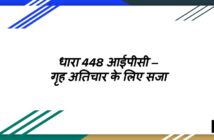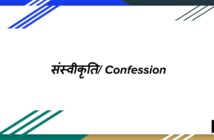Court Marriage Procedure in India
India is a multi-religious country with diverse rituals and cultures. Therefore, in India, marriage is solemnized and governed under different personal laws. However, where the couples seeking marriage are from other religions, they are governed by the Special Marriage Act, 1954. When a marriage is solemnized in a court before the marriage officer, it is called court marriage. Such a marriage is solemnized as per the Special Marriage Act, 1954.
This article will elaborate on the court marriage procedure, who is eligible to get married, what documents are required in court marriage, and what role a lawyer plays in court marriage.
Step By Step Guide to Court Marriage Procedure
Here is the step-by-step procedure for court marriage in India.
Step 1: Intention of the parties to get married:
The parties should notify their intention of getting married to the district marriage officer (where either party resides) by filling an application mentioned in Schedule II of the Special Marriage Act, 1954. This application has to be submitted thirty days before the date of marriage.
Step 2: Display/Publish of notice
After receiving the application, the marriage registrar will display or publish a notice at some prominent place at his office for thirty days.
Step 3: Objection to the marriage
Section 7, Special Marriage Act states that if anyone has any objection to marriage eligibility or if the marriage is illegal or violates any conditions mentioned under Section 4 of the Special Marriage Act, then such person can object within thirty days. The marriage registrar will verify the objection under Section 8. If it is satisfied with the validity of the objection, cancel the court marriage procedure. The party can appeal before the district court against such an order. If no objections are raised, then the registrar can proceed with the solemnization of marriage.
Step 4: Declaration by Witnesses and Parties
The parties (bride and bridegroom) and the three witnesses must sign a declaration in the presence of a marriage officer under Schedule III specified under the Special Marriage Act, 1954.
Step 5: Place and form of solemnization of marriage
After declaration, the marriage officer will solemnize the marriage at its office or at such place which is at a reasonable distance as the parties may wish to. On payment of such additional fees as the marriage, the officer may prescribe. The parties also can select the form of marriage (ceremony of marriage) in any language that they understand.
Step 6: Marriage Certificate
Once all of the above procedure is completed, the marriage officer will issue a marriage certificate per Schedule IV of the Special Marriage Act, 1954. This marriage certificate must be signed by the bride, bridegroom, and the three witnesses before the marriage officer. It serves as conclusive evidence that a marriage under the Special Marriage Act, 1954 has been solemnized and all the procedure has been complied with.
Who is eligible for marriage?
- Conducting marriage requires specific eligibility criteria as per the Special Marriage Act, 1954, namely;
- At the time of marriage, both the bride and bridegroom should not have lived as husband and wife.
- The bride’s age should be over 18 years, and the bridegroom should be 21 years.
- The parties should be of sound mind and should not suffer from any mental disorder or insanity.
- The parties should be able to give valid consent during the marriage.
- Both the parties should not belong to a degree of prohibited relationship (except where the custom permits).
What are the documents required to register for court marriage?
For court marriage, the bride and the bridegroom need to submit the following documents:
- The application form (required under the Act) is duly filled with the bride and bridegroom’s signature.
- Birth proof of both the parties to the marriage (birth certificate/passport/matriculation certificate).
- Receipt of application form fees.
- Residential Proof of one of the parties (ration card/electricity bill).
- Affidavits from bride and bridegroom regarding date of birth and current marital status (single/widower/divorcee).
- Passport size pictures of the bride and bridegroom (2 copies each) attested by the Gazetted Officer.
- Copy of divorce decree (in case of divorcee) or a death certificate of spouse (in case of widow/widower).
- Affirmation by the parties that they do not belong to the degree of prohibited relationship as specified under the Special Marriage Act.
What are Court Marriage Fees?
Every state has its own court marriage rules and regulations. Also, the court fees involved differ from state to state. Therefore, before applying for marriage, one must look into the court fees, application fees, and other related fees. Usually, the court marriage fee for the application is Rs. 150 under the Special Marriage Act; in addition, there are administrative fees and other charges involved, plus lawyer fees (if any).
How can a lawyer help you in court marriage?
Engaging a lawyer to help you in court marriage makes your work much more manageable. The lawyer will do the following work for you:
- Advise filing an application form for notice of marriage.
- Guide you through court procedure,
- Check whether all the eligibility criteria for marriage have been complied with,
- Check all the documents required for registration of marriage,
- Set a convenient time for the parties and witnesses to meet at the marriage registrar’s office, and
- Suppose any objections have been raised and the marriage has been set aside. In that case, a lawyer can appeal and argue on behalf of the parties.
Conclusion
A court marriage is solemnized under the Special Marriage Act, 1954 before a marriage officer in the presence of three witnesses. The Act mentions the eligibility criteria for marriage and the procedure for getting married in a court. People belonging to different religions can marry under the Special Marriage Act.

